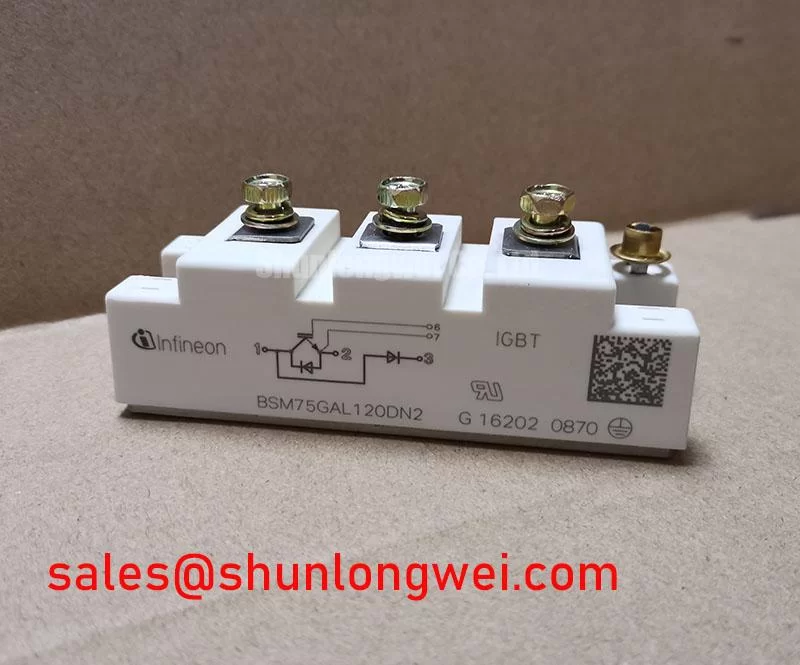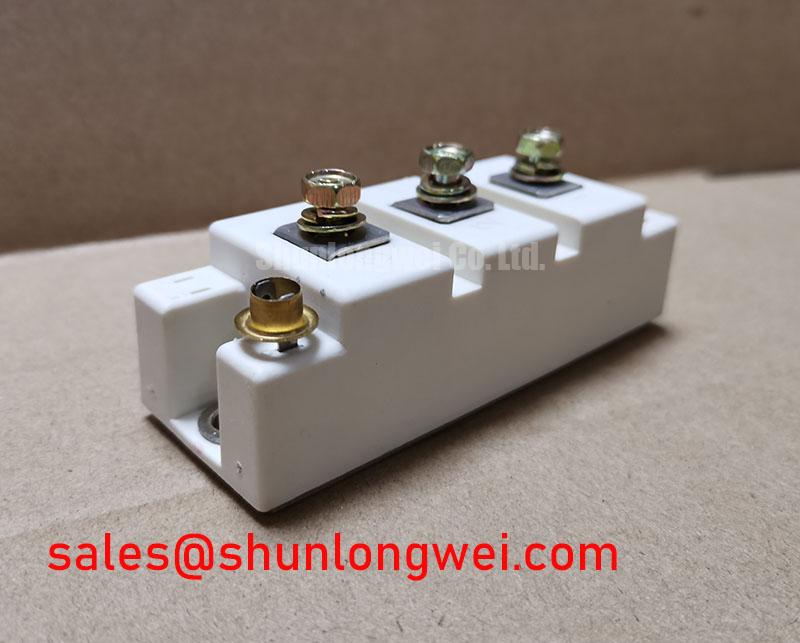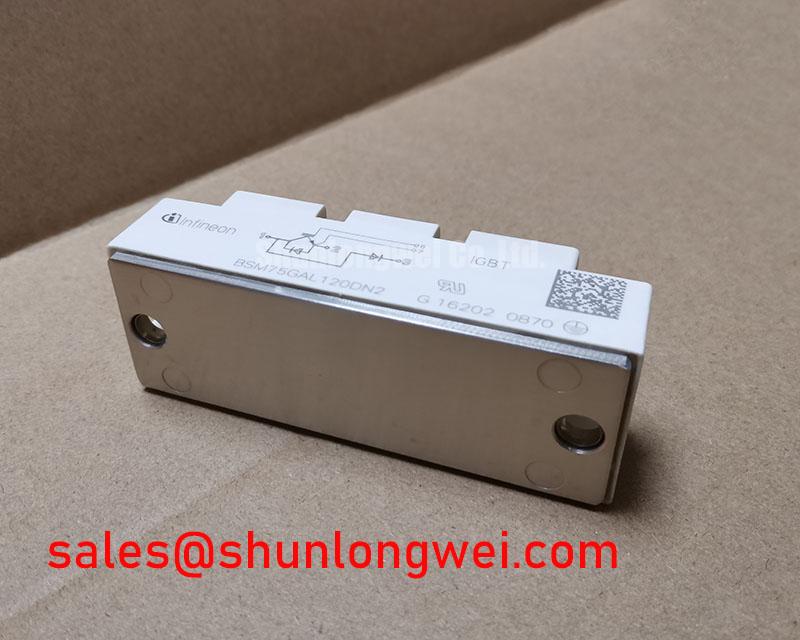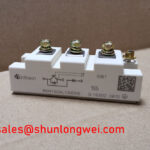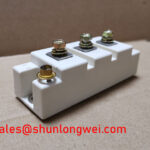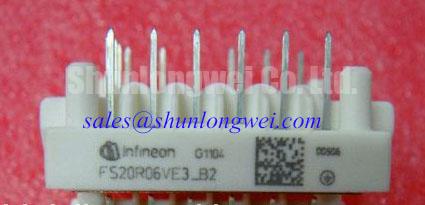Content last revised on November 19, 2025
BSM75GAL120DN2 1200V 75A Dual IGBT Module: Engineering for Thermal Reliability
An In-Depth Technical Review for Power System Engineers
Executive Summary: Core Specifications and Engineering Value
The BSM75GAL120DN2 is a half-bridge IGBT module engineered to deliver proven thermal stability and long-term operational reliability for mid-power industrial motor drives and power conversion systems. It integrates two IGBTs with anti-parallel freewheeling diodes in a single, robust package. Key specifications include: 1200V | 75A (Nominal) | VCE(sat) (typ) 2.2V. This component provides two primary engineering benefits: enhanced thermal stability under load and a simplified path to three-phase inverter design. For engineers developing mid-power industrial drives up to approximately 30 kW that demand proven reliability, the BSM75GAL120DN2 offers an optimal balance of electrical performance and thermal robustness.
Application Scenarios & Value
System-Level Benefits in Industrial Motor Control and Power Conversion
The BSM75GAL120DN2 is best suited for applications where reliable power switching and efficient thermal performance are critical engineering goals. What is the primary benefit of its half-bridge topology? It provides the fundamental building block for the legs of a three-phase Variable Frequency Drive (VFD) or a DC-AC power inverter.
Consider the engineering challenge of a 25kW AC motor drive used in a manufacturing conveyor system. Such a system experiences continuous operation with fluctuating load demands, generating significant thermal stress on the power electronics. The BSM75GAL120DN2's specified thermal resistance from junction to case (RthJC) of 0.2 K/W per IGBT is a critical parameter. This figure dictates how efficiently heat generated during switching and conduction can be transferred to a heatsink. A lower RthJC value simplifies Thermal Management, allowing for smaller heatsink designs or greater thermal margin in harsh industrial environments, directly contributing to system reliability and a lower total cost of ownership. For systems requiring higher power handling for larger motors, the related BSM150GT120DN2 offers a higher current rating within a similar voltage class.
Key Parameter Overview
Decoding the Specs for System Design and Performance
The following table outlines the critical parameters of the BSM75GAL120DN2, grouped by function to facilitate engineering evaluation. These values are extracted from the official manufacturer's documentation and form the basis for any reliable system simulation or design.
| Parameter | Symbol | Value | Conditions |
|---|---|---|---|
| Absolute Maximum Ratings | |||
| Collector-Emitter Voltage | VCES | 1200 V | Tvj = 25 °C |
| Continuous Collector Current | IC | 100 A | TC = 25 °C |
| Nominal Collector Current | IC, nom | 75 A | |
| Total Power Dissipation | Ptot | 625 W | TC = 25 °C |
| Operating Junction Temperature | Tvj, op | -40 to +150 °C | |
| Electrical Characteristics (per IGBT) | |||
| Collector-Emitter Saturation Voltage | VCEsat | 2.2 V (typ) / 2.7 V (max) | IC = 75 A, VGE = 15 V, Tvj = 25 °C |
| Gate-Emitter Threshold Voltage | VGE(th) | 5.0 V to 6.5 V | IC = 3.0 mA, VCE = VGE, Tvj = 25 °C |
| Turn-On Switching Energy | Eon | 13.5 mJ (typ) | IC = 75 A, VCE = 600 V, Tvj = 125 °C |
| Turn-Off Switching Energy | Eoff | 15 mJ (typ) | IC = 75 A, VCE = 600 V, Tvj = 125 °C |
| Thermal Characteristics | |||
| Thermal Resistance, Junction-Case | RthJC | 0.20 K/W | per IGBT |
| Thermal Resistance, Case-Heatsink | RthCK | 0.05 K/W | per module |
Note: The parameters listed above are for quick reference. For complete electrical characteristics, performance curves, and SOA (Safe Operating Area) diagrams, it is imperative to consult the official product documentation.
Download the BSM75GAL120DN2 datasheet for detailed specifications and performance curves.
Industry Insights & Strategic Advantage
Meeting Reliability Demands in Modern Industrial Automation
In the context of Industry 4.0, component reliability is not just a feature; it is a strategic asset. Unscheduled downtime in an automated production line can lead to significant financial losses. The BSM75GAL120DN2, with its robust construction and proven NPT-IGBT technology from a leading manufacturer like Infineon (originally Eupec/Siemens), is designed to meet these stringent reliability requirements. Its thermal cycling and power cycling capabilities, established through rigorous testing, ensure a long operational lifespan. This allows system designers to build power conversion units for applications like Servo Drive systems that can withstand the repetitive, demanding cycles of modern manufacturing and robotics, thereby maximizing uptime and production efficiency.
Frequently Asked Questions (FAQ)
What is the significance of the typical VCE(sat) value of 2.2V in the BSM75GAL120DN2?
The Collector-Emitter Saturation Voltage (VCE(sat)) is a direct measure of the power lost as heat while the IGBT is conducting current. A lower VCE(sat) indicates lower conduction losses. Think of it as a tollbooth for current; the lower the voltage 'toll,' the less energy is wasted as heat. The 2.2V typical value for this module at its nominal current represents a solid balance between conduction losses and switching performance, contributing directly to the overall energy efficiency of the end application, such as a VFD or solar inverter.
How does the half-bridge configuration of the BSM75GAL120DN2 simplify inverter design?
What is a key advantage of the dual-switch topology? It integrates the high-side and low-side switches for one phase of an inverter into a single, thermally-matched package. This eliminates the need to source, match, and mount two separate IGBTs and their corresponding freewheeling diodes. This simplification reduces component count, minimizes parasitic inductance between the switches, simplifies the gate drive layout, and ensures more predictable thermal performance, accelerating the development cycle for three-phase power systems.
Design-In Considerations
To fully leverage the capabilities of the BSM75GAL120DN2, engineers should reference the detailed specifications in the official datasheet. Particular attention to gate drive requirements and thermal interface material selection is crucial for achieving both optimal performance and long-term system reliability. For detailed application notes or to evaluate this component for your specific design, consulting with a technical specialist is recommended.

